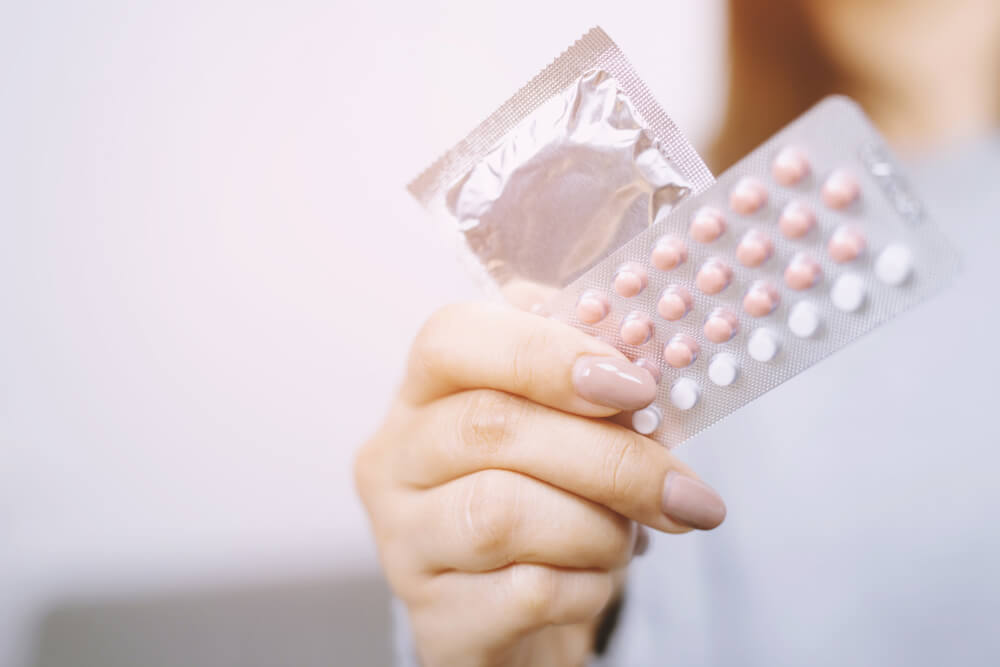Does birth control make you gain weight? In rare cases, it may. When you start taking birth control, you may also experience side effects such as headaches, mood changes, breast tenderness, irregular menstrual bleeding, and blood clots in even rarer cases. In this article, we aim to answer all of your questions concerning birth control and provide you with several options for birth control without hormones.
When starting birth control or changing the method you use, you’ll also want to consult with an expert. If you are looking for the best gynecologist in Miami, Fl, don’t worry, we’ve got you covered.
So, does birth control make you moody? Also, what are the best non-hormonal birth control options? Find out below.
Does Birth Control Make You Moody?
According to limited research, hormonal birth control can make you moody. The good news is that most patients do not experience any change in mood symptoms, and those who do typically have mild changes that go away after a brief time. Let’s explain why.
During a usual 28-day menstrual period, estrogen levels reach their peak around the 14-day mark, or halfway through the cycle. Typically, this is the time when women feel their best both physically and emotionally. The majority of hormonal contraceptives try to adjust this “mountain-shaped” cycle into a straight line for the initial 21 days. After this, the estrogen and progestin levels drop during the last 4-7 days when the placebo pills are taken. Therefore, this may indicate that mood symptoms can occur due to the overall lowering of estrogen levels.
At the same time, it has been shown that hormonal birth control can improve the signs and symptoms of PMS (premenstrual syndrome) or PMDD (premenstrual dysphoric disorder). In fact, hormonal birth control is often given to treat these conditions and it can be very effective.
So, does birth control make you moody? Turns out, in many cases, it improves mood symptoms and in some cases, it can cause mood symptoms. Luckily, it is rare that hormonal birth control makes mood symptoms significantly worse. Very often, mood symptoms are a mild and temporary side effects when patients start the medication.
Overall, the answer to the question “does birth control make you moody?” is not straightforward. Most likely, the answer is no, and only in rare cases.
Does Birth Control Make You Gain Weight?

When taking hormonal birth control, one of the most common beliefs is that it will cause you to gain weight. So, what’s the truth? Does birth control make you gain weight? Since hormonal birth control contains progestins which can cause increased appetite and estrogen which can cause water or fluid retention, you may notice some weight gain initially. However, most hormonal birth control methods do not have high enough estrogen levels to directly cause weight gain. However, based on a review of 44 studies, there is no direct link between birth control pills and weight gain. This is good news! If it happens, you are likely only to gain a small amount, and you will likely lose it within a few months.
Of course, if you are someone who gains weight due to birth control, you will want to consult a professional. Your doctor may prescribe different types of birth control that suit your lifestyle better.
The truth is that the answer to the question of “does birth control make you gain weight?” is not so straightforward either. You may only be experiencing temporary bloat water retention, or you may have been consuming more calories and exercising less. Always talk to your OB-GYN if any concerns arise.
Best Non-Hormonal Birth Control Options
If you are worried about using hormonal contraception, you can opt for non-hormonal birth control. Here are some of the non-hormonal birth control options, their benefits, and potential drawbacks.
Copper IUD or Intrauterine Device
The copper IUD is a highly effective and convenient option for birth control without hormones. Your OB-GYN will insert it into your uterus in the office, where it can stay for up to 10 years. Some of the benefits include effectiveness (99% effective rate against pregnancy), convenience, and a quick return to normal fertility after removal.
However, a copper IUD can cause cramping and make your periods heavier, especially in the first three months. Moreover, like some other contraceptives, a copper IUD doesn’t protect against infections and sexually transmitted diseases.
The Cervical Cap, the Sponge, and the Diaphragm
All of these are options for birth control without hormones. However, they can be a bit trickier to maintain than other methods as they are older and some consider them “outdated”. Speak to your OBGYN to see if they offer these methods.
Male Condoms

A male condom is not only effective in preventing unwanted pregnancy (of course, when used correctly), but it is also great for protecting against any sexually transmitted diseases, or STDs. This is the best form of birth control to reduce your risk of gonorrhea, trichomoniasis, and chlamydia. Condoms are also readily available in almost all convenient stores and pharmacies.
There are can be several downsides to condoms, however. They are often not used consistently or properly which can lead to decreased effectiveness. Very often, they are also used in combination with another form of birth control in order to decrease the risk of STDs.
Book an Appointment with Us Today
When it comes to birth control, there are many different options that you can choose from. What is best for one person may not work as well for someone else or may not work with someone else’s lifestyle. It is a good thing that there are lots of options! At New Age Women’s Health, we have expert gynecologists available to help you decide which birth control method is right for you. Schedule an appointment with us today!





